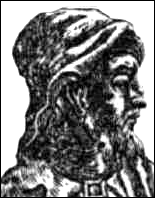The Golden Sayings of Epictetus

LXXV
If you have given way to anger, be sure that over and above the evil involved therein, you have strengthened the habit, and added fuel to the fire. If overcome by a temptation of the flesh, do not reckon it a single defeat, but that you have also strengthened your dissolute habits. Habits and faculties are necessarily affected by the corresponding acts. Those that were not there before, spring up: the rest gain in strength and extent. This is the account which Philosophers give of the origin of diseases of the mind:—Suppose you have once lusted after money: if reason sufficient to produce a sense of the evil be applied, then the lust is checked, and the mind at once regains its original authority; whereas if you have recourse to no remedy, you can no longer look for this return—on the contrary, the next time it is excited by the corresponding object, the flame of desire leaps up more quickly than before. By frequent repetition, the mind in the long run becomes callous; and thus this mental disease produces confirmed Avarice.
One who has had fever, even when it has left him, is not in the same condition of health as before, unless indeed his cure is complete. Something of the same sort is true also of diseases of the mind. Behind, there remains a legacy of traces and of blisters: and unless these are effectually erased, subsequent blows on the same spot will produce no longer mere blisters, but sores. If you do not wish to be prone to anger, do not feed the habit; give it nothing which may tend to its increase. At first, keep quiet and count the days when you were not angry: “I used to be angry every day, then every other day: next every two, next every three days!” and if you succeed in passing thirty days, sacrifice to the Gods in thanksgiving.
 Continue...
Continue...![[Buy at Amazon]](http://images.amazon.com/images/P/B000EWGY2C.01.MZZZZZZZ.jpg)